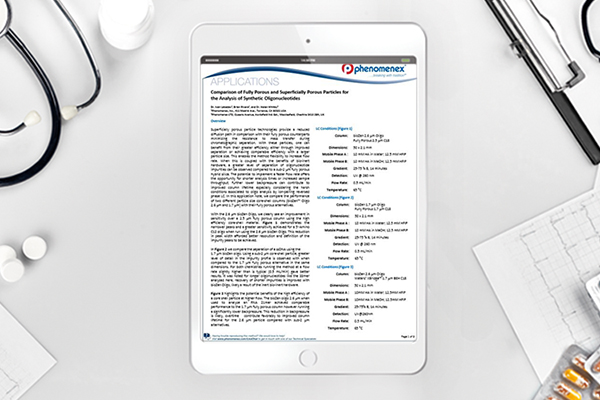Application note: Comparison of fully porous and superficially porous particles for the analysis of synthetic oligonucleotides
Posted: 7 August 2020 | Phenomenex | No comments yet
Superficially porous particle technologies provide a reduced diffusion path in comparison with their fully porous counterparts minimising the resistance to mass transfer during chromatographic separation.
With these particles, one can benefit from their greater efficiency either through improved separation or achieving comparable efficiency with a larger particle size. This enables the method flexibility to increase flow rate. When this is coupled with the benefits of bio-inert hardware, a greater level of separation of oligonucleotide impurities can be observed compared to a sub-2µm fully porous hybrid silica.
Related content from this organisation
- Application note: The effect of column hardware on the analysis of synthetic oligonucleotides by LC-MS
- Application note: Effect of temperature on single stranded oligonucleotide analysis
- Application note: Effect of perfluorinated alcohols in impurity analysis for synthetic oligonucleotides
- Application note: Effect of alkylamine based Ion-pairing reagents in analysis of siRNA
- Application note: Comparison of fully porous and superficially porous particles for the analysis of synthetic oligonucleotides
Related topics
Analysis, Analytical Techniques, Biopharmaceuticals, Disease Research, Gene Testing, Genetic Analysis, Genome Editing, Genomics, Mass Spectrometry, Personalised Medicine
Related organisations
Phenomenex









